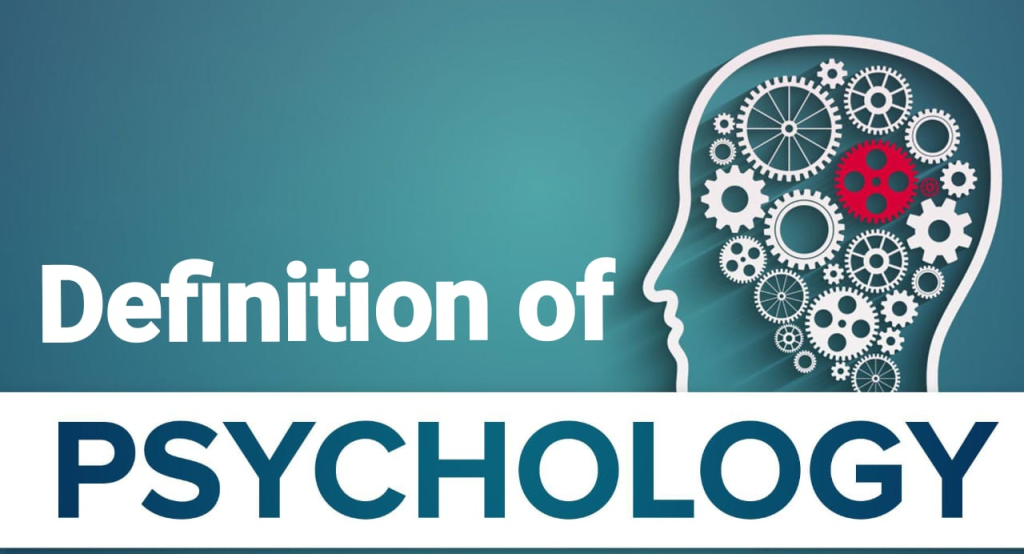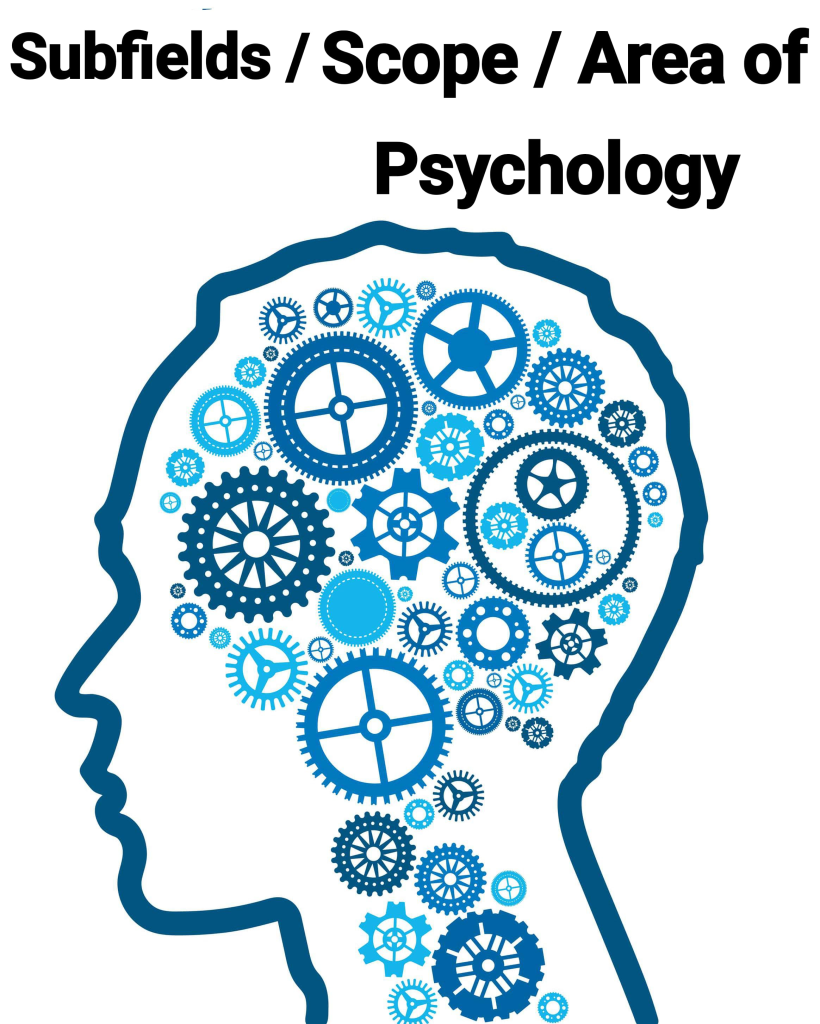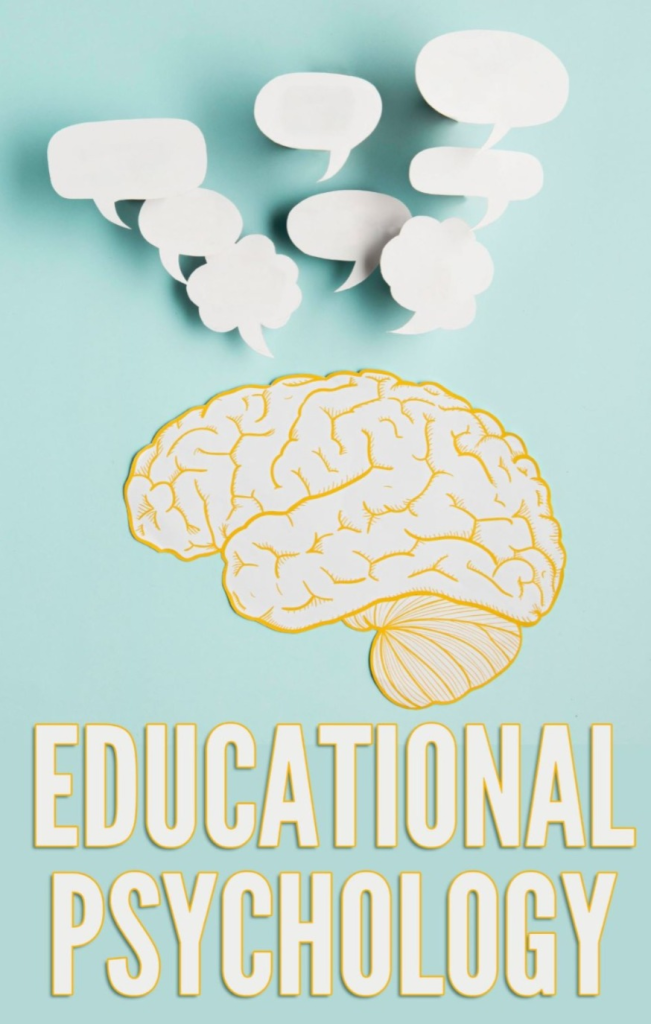ENGLISH-PSYCHOLOGY UNIT:1(INTRODUCTION TO PSYCHOLOGY)
UNIT : 1 Introduction to Psychology:

KEY TERMS:
Psychology:

The scientific study of mental processes and behavior is called Psychology (Psyche : Human mind, Logos : a Study).
Nurse :

A nurse is a health professional who provides skilled care and assistance by utilizing scientific knowledge and principles.
Nursing:

Nursing is a profession that deals with the skilled caring and assisting of individuals, families and society.
Introduction :

- With the development of psychology, its meaning also changed.
- Psyche initially meant spirit or soul, but later the word mind was used instead of spirit.
- Mind means mind, mind means the study of consciousness.
- The word psychology is made up of two Greek words psyche (psyche) and logos (logos)
- Until 1590, the word psyche (psyche) meant soul and the word logos (logos) meant study. That is, psychology used to mean the study of soul / spirit.
- Here the meaning of the word soul is very broad. Later, William James used the word mind instead of the word soul.
- Thus, the definition of psychology was as the study of mind. Here the word mind is a word of philosophy, which created more problems.
- In the late 19th century, Wilhelm Woodend used the word behavior instead of mind.
So the new definition of psychology was made as the study of behavior.
Definition of psychology :

- The word psychology is derived from two Greek words psyche (psyche) and logos (logos).
- In which the word psyche means human mind and the word logos means study.
- Psychology is the scientific study of mental processes and behavior is called Psychology (Psyche : Human mind, Logos : a Study).In this The study is also about how it works.
Or - Psychology is the scientific study of the human mind, which studies the function of the mind and its effect on behavior.
Nature of Psychology:

Psychology is a positive Science.
Psychology deals with facts and operates naturally.
Psychology uses the scientific method.
Psychology uses the scientific method for any research or investigation.
Psychology is a developing and growing science.
Psychology is always doing new research and moving forward in its field.
Psychology is an applied science.
Psychology uses its principles and techniques in other fields Psychology studies the facts of behavior. Psychology studies the facts of behavior. Psychology studies the behavior of animals and humans. Psychology has different branches.
Such as social psychology, forensic psychology.
Subfields /Scope/Areas of Psychology:

Psychology is a broad and diverse field. Many different subfields and specialty areas have emerged. For convenience and specialized study, the subject matter of psychology can be grouped into various branches. We divide it into two broad categories, namely
1) Pure Psychology and
2) Applied Psychology.
Branches of Psychology
The following branches can be seen in the study of psychology gets
1. Pure Psychology :

Pure Psychology provides a framework and theory. Its content deals with ecological principles and the formulation of theories. It suggests various methods and techniques for analysis, assessment, modification, and behavior improvement.
2. Applied Psychology :

In applied psychology, the theories generated and discussed by pure psychology take their practical shape. Here, we discuss the ways and means of applying psychological rules, principles, theories and techniques in the context of real practical situations.

Pure Branches of Pure Psychology are as follows:

1. General Psychology:

In which the general psychological principles and theories of a person are studied. In which the fundamental rules of psychology, the normal study of human behavior, are carried out.
2. Abnormal Psychology:

In which the study of psychology is also known as psychopathology. Which includes the study of mental illness and related psychopathology.
3. Social Psychology:

It is the scientific study of social perception, social influence and interaction of people living in society.
4. Experimental Psychology:

In which psychological experiments are conducted in different ways in the laboratory. In which mental processes, behavior and related studies are stored.
5. Biological Psychology:

In which biological processes are studied in relation to how they affect the mind and behavior.
6. Pera Psychology:

This branch of psychology includes some sensory perception and applied problems.
7. Developmental Psychology:

This branch studies the growth and development of an individual. Its cognition, social function, and other areas of growth and development are studied.
The branches of Applied Psychology are as follows:

1. Educational Psychology:

Which includes the subject matter of principles related to psychology and educational theory etc.
2. Clinical Psychology:

This branch of psychology focuses on the clinical diagnosis, assessment and treatment of disease.
3. Industrial Psychology:

In this branch, employees working in any company are exposed to the principles, industrial environment and problems related to it. Study is being done.
4. Legal Psychology (Legal Psychology):

In which any legal legal practitioner uses psychological principles and Psychological techniques are studied. In which legal issues like crime detection and false witness are studied.
5. Military Psychology:

This deals with the psychological principles and their study of military services. In which the study of soldiers and their behavior and psychological principles during wartime is done.
6. School Psychology:

This branch of psychology studies the emotional, social and academic issues of children studying in school.
Importance of Psychology in Nursing (Importance of Psychology in Nursing):

- Nursing and psychology are two different fields but they are related to each other.
- Nursing focuses on health problems and their recovery, while psychology studies mental processes and behavior.
- Nursing and psychology are related to each other because a nurse needs to know the behavior and emotional status of a patient while helping them recover from their problems.
- A nurse has to deal with different people and different problems, so she/he There should be necessary knowledge about human psychology. Hence, it is necessary to have knowledge about psychology in nursing.

Psychology will help the nurse to understand her self
- Psychology helps nurses understand themselves.
- Psychology helps nurses understand their own goals, desires, feelings, and aspirations.
- With the help of psychology, nurses can learn about their abilities, strengths, weaknesses, and limitations.
- Nurses learn how to relate to others, how to behave with others, and how to react in certain situations. Giving is about knowing.
Psychology will help the nurse to understand other people
- Psychology helps nurses understand the behavior of other people.
- With the help of which nurses will be able to understand the behavior of other members of the health team such as doctors, patients and their family members and will be able to work well together.
- Since nurses have scientific knowledge of human behavior, they can understand other people well and easily and can build good interpersonal relationships.
- Psychology helps the nurse to understand the different defense mechanisms used by people.
- She will understand the impact of customs and culture on people’s behavior and will be able to provide effective care to people.
Psychology will help the nurse to improve the situation by solving problems and changing the environment.
- A nurse can solve any problem that she learns from psychology.
- The study of psychology helps in making adjustments as a result of mental illness and handicap and in solving the problems that arise as a result.
- Some types of diseases such as heart disease, cancer, etc. can be controlled with the help of treatment, but these types of diseases cannot be completely eradicated, but they have to be lived with by making special adjustments. This requires special coping skills that nurses can learn through the study of psychology.
He will understand the relationship of body, mind and spirit
- Psychology helps to understand the relationship between the body, mind and spirit and how they affect each other.
- The nurse will learn how her emotions affect her body and similarly she will learn about the effect of the patient’s emotions on the patient’s body.

FOR UNLOCK 🔓 FULL COURSE NOW. MORE DETAILS CALL US OR WATSAPP ON- 8485976407.
To unlock the full course 🔓 or for more information, contact or whatsapp the following number.-
8485976407